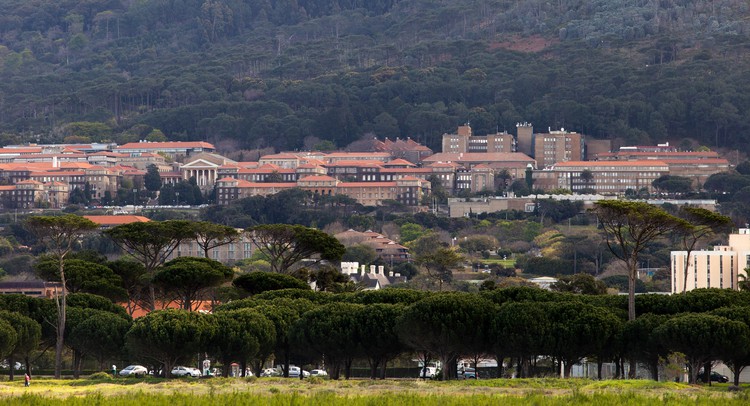
22 May 2023
The University of Cape Town has been embroiled in leadership battles for several years. Archive photo: Ashraf Hendricks
The Chairperson of the University of Cape Town’s council, Babalwa Ngonyama has resigned, with immediate effect.
This follows a recommendation from a high-powered panel, established to investigate governance at UCT, in an interim report, that she be immediately removed.
The panel consists of Judge Lex Mpati (chair), Judge Azhar Cachalia, Dr Bernadette Johnson and Dr Patricia Hanekom.
Read the panel’s report
Read the chairperson’s resignation statement
The panel’s report, dated 17 May 2023, states:
“At this stage, the facts established from the uncontested evidence of the witnesses, given under oath or affirmation, are sufficient to conclude that her continued presence as COC (chair of council) poses a serious risk to the University.
“This together with her threatened attempt to stymie the work of the Panel through an ill-conceived legal stratagem is further proof that she cannot be trusted to fulfill her fiduciary duty to the university.
“Her removal cannot wait for the Panel to complete its work and finalize its report, much less wait for the matter to be dragged through the courts. The facts are clear, and council must act.”
In a statement dated 22 May, Ngonyama said she had taken the decision to step down after “thoughtful consideration and deep and thorough reflection” and taking into consideration the current circumstances on her wellness and health.
She said she had always supported the work of the Panel but “it was one thing to focus on improving governance at UCT, it is a completely different matter to use the process in an attempt to lay blame”.
She said the fact that the Panel had refused to give her access to statements made against her “conflicted with a basic tenet of procedural fairness”.
She had made a court application to determine the fairness of this, and it was this that had prompted the release of the interim report.
At the heart of the probe was whether the university’s then vice-chancellor (VC), Professor Mamokgethi Phakeng, and Ngonyama misled the university’s executive and Senate about the reasons for the departure of the deputy vice-chancellor (DVC) for teaching and learning, Associate Professor Lis Lange.
They claimed Lange had resigned for personal reasons. Lange claimed she had been pushed.
In February this year, the council approved a settlement agreement terminating Phakeng’s appointment and, the Panel notes, she had since severed her relationship with the university.
The Panel said while Phakeng had twice given evidence before it, Ngonyama had repeatedly refused to co-operate.
“It is apparent she has no intention of providing evidence to the panel, this despite her fiduciary duty to do so. She complains that the panel is not treating her fairly. There is no substance or evidence to support this complaint,” it said.
Its findings, in the interim report. include:
“The facts established demonstrated that as early as May 2021, the chair of council embarked on a strategy to terminate DVC Lange’s contract prematurely and renew the VC’s term for a further five years.
“It was Lange’s express wish to remain DVC for a further term,” the Panel said.
“The former VC became aware of this plan and went along with it as she was also not keen to renew Lange’s contract.”
The Panel said there are other matters concerning her conduct pertaining to the resignation or termination of other executives which it would deal with more fully in its final report.
In a draft document, seen by GroundUp, members of the Council proposed a special meeting to discuss the removal of both Ngonyama and Gwangwa from office.
It also recommends the termination of Professor Martin Hall.
“As detailed in the interim report, Professor Hall appears to have prior knowledge of various matters that led to the establishment of the Panel itself, in particular, negotiations regarding Lis Lange’s exit, and could therefore be said to have been complicit in the misleading presentation of these matters to both Senate and Council,” the document states.
Hall told GroundUp: “I have cooperated fully with the Panel, both in providing written statements and in person. I was not involved in the negotiations leading to Associate Professor Lis Lange’s departure from the university and I did not make any representations on this matter to either the Senate or the Council. My contract as Acting Deputy Vice-Chancellor ended in June 2022 and I am no longer a member of the University Executive.”
Phakeng’s social media manager, Ndumiso Nkosi, told GroundUp: “Despite willingly testifying before the Panel and maintaining a cooperative stance throughout the entire process, she [Phakeng] was disheartened to discover the interim report through media coverage. She made it explicitly clear in the past that she harbored no trust in the Panel, and this unfortunate revelation serves to confirm her suspicions, and previous assertions that the leaking of confidential documents is a central part of the university’s governance crisis.”
Nkosi said that Phakeng he has since read the report and “it is apparent that her testimony had not yet been considered at the time of the interim report’s release”.
“Prof. Phakeng eagerly awaits the final report to comprehend the Panel’s rationale behind all conclusions and recommendations it will make. Rest assured, she will provide a comprehensive response upon the release of the final report.
“At present, all she can say is that she is taken aback by the Chair’s unwillingness to testify before the Panel. What is even more shocking is the sudden resignation. Prof. Phakeng remains worried about the University’s trajectory and hopes that the institution prevails.”